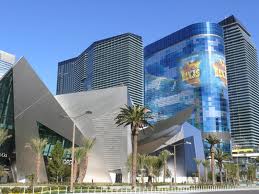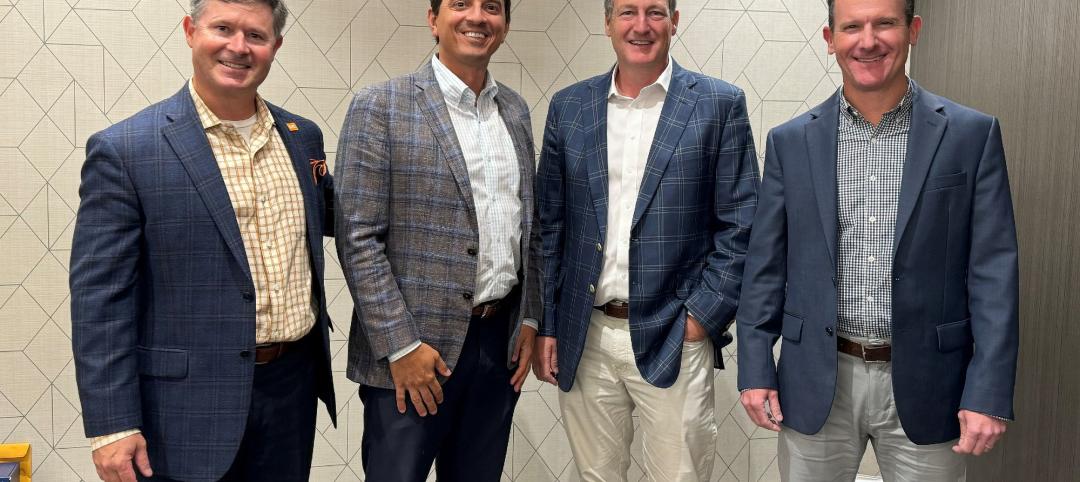MGM Resorts International shareholders and bondholders have filed an amended class-action lawsuit in hopes of recovering losses from the decline of the Las Vegas company’s stock and bond prices between 2007 and 2009.
Two and a half years ago, stockholders filed six lawsuits after the stock price fell from $99.75 on Oct. 9, 2007, to $1.89 on March 5, 2009. Bondholders sued over similar steep losses.
The securities holders complained the prices fell because of problems related to the global recession as well as undisclosed cost overruns, construction problems, and financial difficulties MGM Resorts faced with its half-owned $8.5 billion CityCenter casino resort complex on the Las Vegas Strip.
The lawsuits complained that MGM Resorts officials failed to promptly disclose many of these problems, causing the stock and bond prices to be inflated before they tumbled once the market realized how serious the issues were.
U.S. District Judge Gloria Navarro in Las Vegas on March 27 dismissed two of the suits, saying they weren’t specific enough.
The shareholders and bondholders responded Tuesday by filing an amended combined lawsuit with more specific allegations about what certain MGM Resorts officials told shareholders, bondholders and analysts in presentations and in earnings reports and conference calls in 2007, 2008, and 2009.
The amended suit says 10 confidential witnesses have provided detailed information to the shareholders’ attorneys about CityCenter construction and financing problems.
The suit says these witnesses are executives who served as a vice president of global sourcing for MGM Resorts, an MGM director of construction management and finance, an MGM design project manager, an MGM corporate finance officer, an MGM financial analyst, an MGM internal audit director, an MGM lead project manager, a cost engineer for general contractor Perini Building Co., a project control director for contractor Tishman Construction and an engineer on the podium portion of the Harmon Hotel, where construction remains halted because of construction defects.
Based on information from these witnesses, the shareholders allege that as early as August 2007 MGM Resorts officials falsely told shareholders that construction was “progressing nicely” on CityCenter and that it was “on budget.”
The shareholders allege these statements were false because much of CityCenter was being designed as it was being built, sometimes forcing contractors to remove components and then rebuild them according to updated designs.
“Constant design changes while construction was already in progress led to increasing construction costs,” the suit says, citing information from one of the confidential witnesses.
One witness “confirmed that MGM’s construction estimates were underestimated from the very beginning of the project because the design drawings were not completed and the exact quantity and grade of materials was not known to Perini when it made its initial bids (the bids on which MGM’s estimates were based),” the suit says. “After Perini submitted its bids, MGM changed the designs, increasing the quantity, grade and price of materials required, thereby increasing the construction costs.”
“The publicly announced construction costs for CityCenter were purposely underestimated. This was so because, while Perini provided accurate cost estimates to MGM, MGM and Tishman arbitrarily reduced those estimates by 20 percent when formulating CityCenter’s estimated construction costs to be reported to the public,” the suit charges.
The shareholders complained that CityCenter was “plagued by construction problems” including at the Harmon, where the suit says major issues were apparent as early as March 2008 but weren’t disclosed until January 2009.
The suit says that even when CityCenter was described as a $7.4 billion project in 2007, MGM Resorts was facing difficulties in finalizing $3 billion in financing for it.
That’s because just as the credit markets were tightening in response to the global recession, MGM Resorts was being squeezed by the declining value of CityCenter as well as a slowdown in visitation to Las Vegas that was reducing its revenue and cash flow.
“CityCenter would prove much more costly to MGM — and its shareholders — than ever disclosed by defendants. In fact, MGM’s crown jewel project would prove to be a virtual black hole, bringing the company to the brink of bankruptcy and causing its investors to suffer massive losses,” the suit complained.
The shareholders and bondholders in Tuesday’s amended complaint are pension funds, including the Arkansas Teacher Retirement System, the Philadelphia Board of Pensions and Retirement, the Luzerne County (Pa.) Retirement System and Netherlands-based pension fund manager PMT.
They claim to have lost about $6.7 million on their MGM Resorts investments and hope to recover their losses and the unspecified losses of others who bought MGM Resorts securities between Aug. 7, 2007, and March 5, 2009.
MGM Resorts – then called MGM Mirage – eventually finalized financing for CityCenter and beefed up its own balance sheet with a series of debt and equity issuances beginning in 2009.
The company has denied the shareholders’ allegations that it failed to disclose problems with the construction and financing of CityCenter; and it’s unknown when or how the shareholder lawsuits will be resolved. BD+C
Related Stories
MFPRO+ News | Jun 3, 2024
Seattle mayor wants to scale back energy code to spur more housing construction
Seattle’s mayor recently proposed that the city scale back a scheduled revamping of its building energy code to help boost housing production. The proposal would halt an update to the city’s multifamily and commercial building energy code that is scheduled to take effect later this year.
Mass Timber | May 31, 2024
Mass timber a big part of Western Washington University’s net-zero ambitions
Western Washington University, in Bellingham, Wash., 90 miles from Seattle, is in the process of expanding its ABET-accredited programs for electrical engineering, computer engineering and science, and energy science. As part of that process, the university is building Kaiser Borsari Hall, the 54,000-sf new home for those academic disciplines that will include teaching labs, research labs, classrooms, collaborative spaces, and administrative offices.
Construction Costs | May 31, 2024
Despite challenges, 2024 construction material prices continue to stabilize
Gordian’s Q2 2024 Quarterly Construction Cost Insights Report indicates that supply chain issues notwithstanding, many commodities are exhibiting price normalization.
University Buildings | May 30, 2024
Washington University School of Medicine opens one of the world’s largest neuroscience research buildings
In St. Louis’ Cortex Innovation District, Washington University School of Medicine recently opened its new Jeffrey T. Fort Neuroscience Research Building. Designed by CannonDesign and Perkins&Will, the 11-story, 609,000-sf facility is one of the largest neuroscience buildings in the world.
Architects | May 30, 2024
AE firm Goodwyn Mills Cawood merges with Southland Engineering
Architecture and engineering firm Goodwyn Mills Cawood (GMC) is further expanding its services through a strategic merger with engineering firm Southland Engineering in Cartersville, Ga.
K-12 Schools | May 30, 2024
Inclusive design strategies to transform learning spaces
Students with disabilities and those experiencing mental health and behavioral conditions represent a group of the most vulnerable students at risk for failing to connect educationally and socially. Educators and school districts are struggling to accommodate all of these nuanced and, at times, overlapping conditions.
MFPRO+ New Projects | May 29, 2024
Two San Francisco multifamily high rises install onsite water recycling systems
Two high-rise apartment buildings in San Francisco have installed onsite water recycling systems that will reuse a total of 3.9 million gallons of wastewater annually. The recycled water will be used for toilet flushing, cooling towers, and landscape irrigation to significantly reduce water usage in both buildings.
Healthcare Facilities | May 28, 2024
Healthcare design: How to improve the parking experience for patients and families
Parking is likely a patient’s—and their families—first and last touch with a healthcare facility. As such, the arrival and departure parking experience can have a profound impact on their experience with the healthcare facility, writes Beth Bryan, PE, PTOE, PTP, STP2, Principal, Project Manager, Walter P Moore.
Urban Planning | May 28, 2024
‘Flowing’ design emphasizes interaction at Bellevue, Wash., development
The three-tower 1,030,000-sf office and retail development designed by Graphite Design Group in collaboration with Compton Design Office for Vulcan Real Estate is attracting some of the world’s largest names in tech and hospitality.
MFPRO+ News | May 28, 2024
ENERGY STAR NextGen Certification for New Homes and Apartments launched
The U.S. Environmental Protection Agency recently launched ENERGY STAR NextGen Certified Homes and Apartments, a voluntary certification program for new residential buildings. The program will increase national energy and emissions savings by accelerating the building industry’s adoption of advanced, energy-efficient technologies, according to an EPA news release.

















